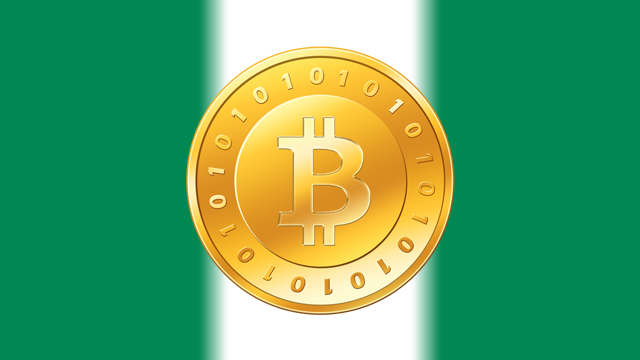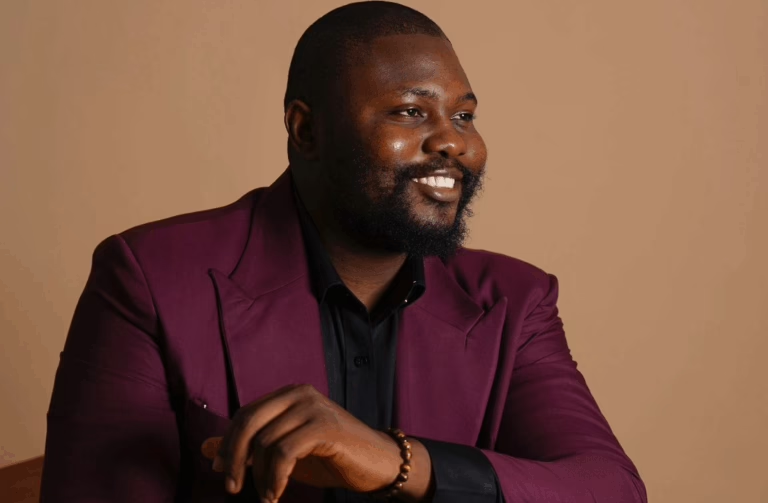When Nigeria dropped from second to sixth place in the 2025 Chainalysis Global Crypto Adoption Index, many critics were quick to declare that the nation’s prominence in the crypto space was overstated and unsustainable.
Given the country’s struggles with soaring inflation nearing 30%, widespread poverty, a depreciating naira, and inconsistent internet connectivity, skeptics questioned how Nigeria could maintain such high levels of cryptocurrency adoption.
However, Emmanuel Onuoha, a blockchain developer, founder of OpenWaver and Web3 Nigeria, and a leading advocate for Web3 in the country, believes these criticisms overlook the deeper reality. For him, Nigeria’s engagement with crypto transcends rankings-it represents a vital means of survival.
“Crypto here isn’t just a trend,” Onuoha asserts. “It’s a tool for resilience.” It embodies the resourcefulness and determination of millions of Nigerians who have integrated digital currencies into their daily lives as a response to economic hardship.
Onuoha’s own path reflects this shift. When the COVID-19 pandemic shuttered his physical businesses and dried up freelance coding opportunities, he turned to blockchain technology out of necessity rather than speculation.
“The pandemic was the catalyst,” he explains. “Working from home, building projects, and experimenting with blockchain gave me a sense of freedom I hadn’t experienced before.”

This newfound freedom led to the creation of OpenWaver, a company focused on Web3 product development, and later Web3 Nigeria, a grassroots initiative that highlights local innovators. Five years on, Onuoha has evolved from a developer into a prominent voice advocating for Nigeria’s role in the global crypto ecosystem.
Decoding the Chainalysis Ranking
The statistics are intriguing. From July 2024 to June 2025, Nigerians transacted over $92.1 billion in on-chain value, accounting for more than half of Sub-Saharan Africa’s total crypto activity. Yet, Nigeria slipped to sixth place in the Chainalysis rankings, trailing behind countries like India, the U.S., Pakistan, Vietnam, and Brazil.
Onuoha acknowledges the figures but argues they don’t tell the full story.
“Most of Nigeria’s crypto volume comes from everyday individuals, not large institutions,” he notes. “In contrast, countries like the U.S. and India have massive institutional players moving billions.”
Essentially, while Wall Street’s heavyweights drive America’s numbers, Nigeria’s crypto activity is powered by street-level traders and small-scale users. Chainalysis’s focus on institutional transactions thus paints an incomplete picture.
Also Read: Nigeria drives Sub-Saharan Africa’s $205bn crypto boom despite global ranking drop
Crypto: From Trend to Essential Toolkit
Looking beyond rankings reveals a clearer context. Since 2023, the naira has lost over 70% of its value due to inflation. Nearly 40% of Nigerians remain outside the formal banking system, and sending $200 via traditional remittance channels can incur fees as high as 10%.
Cryptocurrency fills these gaps. Stablecoins enable affordable cross-border transfers, Binance’s peer-to-peer platform sustains naira trading, and wallet apps like Trust Wallet count Nigeria among their largest user bases.
“Crypto awareness here is nearly universal,” Onuoha says. “Even secondary school students are engaging with airdrops, writing about crypto, and finding ways to earn.”

Beyond trading, innovations like Osusu-a digital version of traditional market-women savings groups-and crypto-to-naira conversion services at local shops are quietly transforming everyday financial practices.
Where Critics Miss the Mark
Detractors often point to Nigeria’s low GDP per capita, inconsistent internet access, and widespread use of basic mobile phones as barriers to mass crypto adoption. Onuoha challenges this view.
“These challenges don’t outweigh the widespread awareness,” he says. “Almost 90% of Nigerians know about crypto, and nearly half own some form of digital asset. This isn’t hype-it’s a fact.”
Surveys back this up: 46% of Nigerians hold cryptocurrencies, and 90% express intentions to increase their investments, ranking among the highest globally.
The disconnect arises because external observers tend to equate adoption with large-scale institutional investment rather than grassroots engagement. “If outsiders tell our story, they miss the vibrant community driving this movement,” Onuoha warns.
The Funding Paradox: High Adoption, Low Investment
Despite Nigeria’s leading position in crypto usage, its Web3 startups face significant funding challenges. While fintech companies attracted hundreds of millions in 2024, blockchain ventures barely raised $20 million nationwide.
Notable exceptions like Credi’s $22 million funding round and Onboard Wallet’s backing from Coinbase were secured through foreign venture capital. Many local entrepreneurs lack access to these international networks.

“We need more homegrown investment funds,” Onuoha emphasizes. “Without visibility, even the best projects remain unnoticed.”
To address this, Web3 Nigeria hosts an “Emerging Product Spotlight” each month, featuring five Nigerian-built blockchain projects. Still, Onuoha admits that exposure without financial backing only goes so far.
From Regulatory Clampdowns to Tentative Acceptance
In 2021, Nigeria’s central bank prohibited banks from providing services to crypto companies, pushing the sector underground. Fast forward four years, and the environment has shifted.
The 2025 Investments and Securities Act now formally recognises digital assets. The Securities and Exchange Commission (SEC) has issued 19 licenses, and the Central Bank has approved a naira-backed stablecoin (cNGN), which boasts over 602.9 million tokens in circulation, more than 75,000 on-chain transactions, and a total trading volume exceeding 20.1 billion as of September 15, 2025.
Also Read: Nigeria falls to 6th as India and U.S. top Chainalysis 2025 Global Crypto Adoption Index
While these developments signal progress, Onuoha calls for bolder government support. “Why can’t Nigeria establish a national Bitcoin fund like El Salvador?” he asks.
He believes regulation should not only impose limits but also foster growth. “Clear policies will encourage builders to innovate, attract institutional investors, and deepen adoption.”
Confronting the “Yahoo Boys” Stereotype
No discussion of Nigerian crypto is complete without addressing concerns about fraud. Critics often blame “Yahoo boys” and scammers for inflating adoption figures. Recently, the Economic and Financial Crimes Commission (EFCC) chairman cautioned about the thin line between legitimate users and bad actors in the ecosystem.
Onuoha disputes this narrative. “Blockchain’s transparency means every transaction is traceable,” he explains.

Instead of painting the entire sector with suspicion, the focus should be on promoting transparent, utility-driven projects led by identifiable founders. “More entrepreneurs are stepping forward with real-world solutions and putting their reputations on the line. That’s the best way to dispel Ponzi scheme myths.”
Despite the obstacles, Onuoha remains optimistic. He envisions Nigeria becoming a top-three global blockchain hub by 2030, contingent on three key factors:
- Governmental support: integrating blockchain into public services.
- Institutional funding: attracting both local and international investment.
- Innovative builders: creating solutions tailored to Nigerian challenges.
“If these align, Nigeria will maintain its leadership,” he predicts.
For Onuoha, this is deeply personal. “Blockchain transformed my life,” he reflects. “For millions here, it’s not about hype-it’s about enduring through adversity.”
While Chainalysis can quantify transaction volumes, it cannot capture the spirit driving Nigeria’s crypto movement. Though ranked sixth globally, Nigeria’s grassroots innovation and resilience make it a powerhouse in its own right: a nation where young people outsmart inflation, market women digitize savings, and creators carve out a global presence.
“Nigeria’s crypto adoption isn’t declining,” Onuoha insists. “It’s just that our story hasn’t been told properly.”
With local voices like the media and Web3 Nigeria amplifying this narrative, the world may soon recognize Nigeria’s crypto journey for what it truly is: a grassroots revolution reshaping lives.























0 Comments